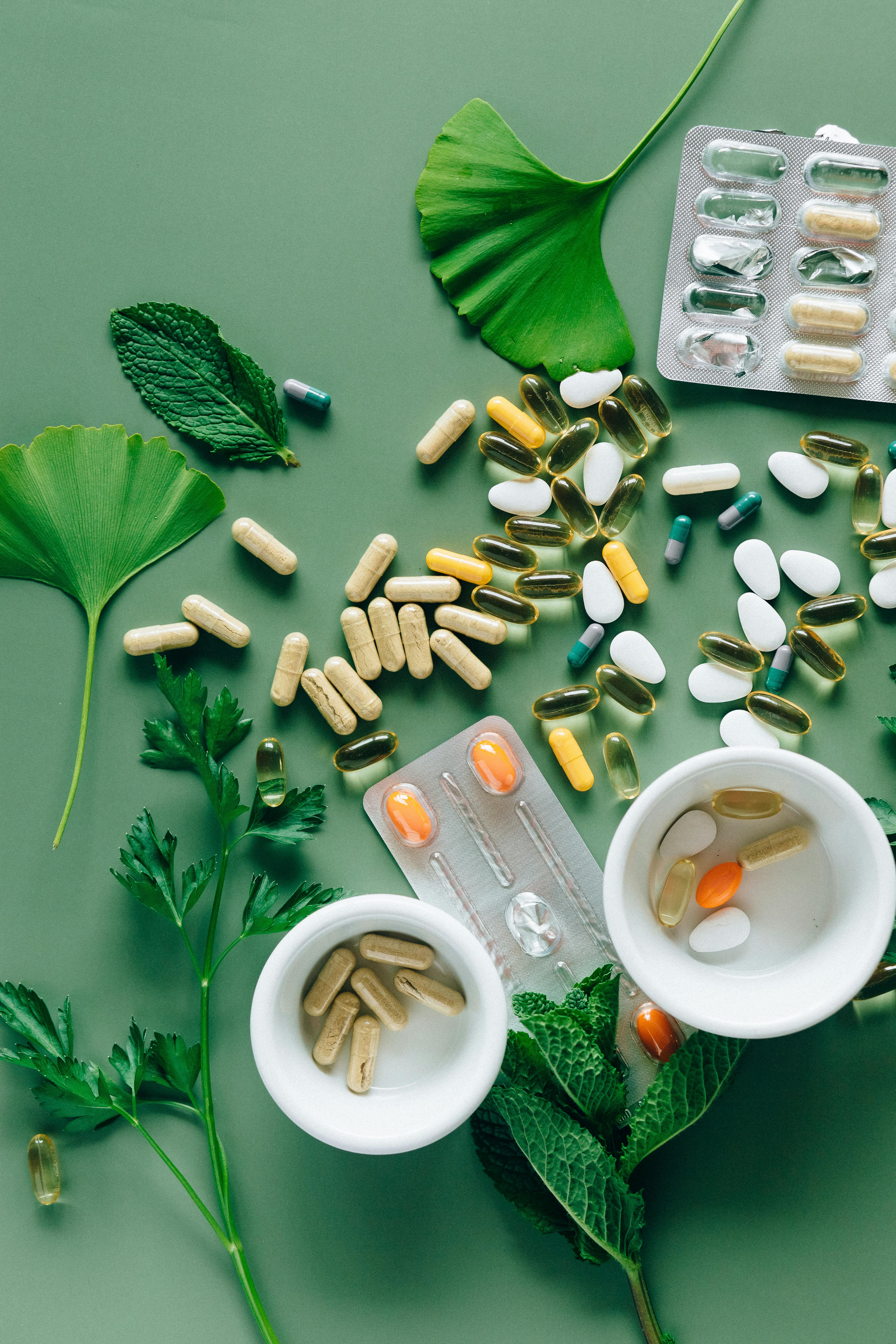Maintaining healthy cholesterol levels is essential for overall cardiovascular health. With various factors like diet and lifestyle influencing cholesterol levels, many people wonder if supplements can offer additional support. In this article, we explore the potential benefits of using supplements to maintain healthy cholesterol levels and provide insights into the effectiveness of such approaches. By understanding the role of supplements in managing cholesterol, you will have a better grasp on how to keep your heart and arteries in optimal condition. So, let’s dive into the world of cholesterol and find out if supplements can be a valuable addition to a healthy lifestyle.

What are cholesterol levels?
Definition of cholesterol
Cholesterol is a waxy substance that is naturally produced by the body and is also present in certain foods. It is an important component of cell membranes and is necessary for the synthesis of hormones, Vitamin D, and bile acids. Cholesterol is transported in the blood by proteins called lipoproteins.
Types of cholesterol
There are two main types of cholesterol: low-density lipoprotein (LDL) cholesterol, often referred to as “bad” cholesterol, and high-density lipoprotein (HDL) cholesterol, commonly known as “good” cholesterol. LDL cholesterol is associated with the buildup of plaque in the arteries, which can increase the risk of heart disease. HDL cholesterol, on the other hand, helps remove excess cholesterol from the bloodstream and carries it back to the liver for excretion.
Importance of maintaining healthy cholesterol levels
Maintaining healthy cholesterol levels is crucial for overall cardiovascular health. High levels of LDL cholesterol can lead to the development of atherosclerosis, a condition characterized by the buildup of plaque in the arteries, which can narrow the blood vessels and restrict blood flow. This can increase the risk of heart attacks and strokes. On the other hand, having sufficient levels of HDL cholesterol helps protect against these conditions by removing excess cholesterol from the bloodstream.
Factors that affect cholesterol levels
Dietary factors
The foods we consume play a significant role in our cholesterol levels. Diets high in saturated and trans fats can lead to increased LDL cholesterol levels. Foods such as red meat, full-fat dairy products, and processed snacks are commonly associated with elevated cholesterol levels. On the other hand, consuming foods high in fiber, such as fruits, vegetables, whole grains, and legumes, can help lower LDL cholesterol.
Physical activity level
Regular physical activity has been shown to increase HDL cholesterol levels and lower LDL cholesterol levels. Engaging in exercises, such as aerobic activities, strength training, and cardiovascular exercises, can help improve cholesterol levels.
Genetics
Genetic factors also influence cholesterol levels to some extent. Certain individuals may have a genetic predisposition to higher cholesterol levels, despite maintaining a healthy lifestyle. In such cases, it is important to work closely with healthcare professionals to manage cholesterol levels effectively.
Medical conditions
Certain medical conditions, such as diabetes, hypothyroidism, and kidney disease, can affect cholesterol levels. These conditions can either increase LDL cholesterol levels or decrease HDL cholesterol levels, making it important for individuals with these conditions to monitor and manage their cholesterol levels closely.
Understanding the role of supplements in maintaining healthy cholesterol levels
Supplements commonly used for cholesterol management
There are several supplements available on the market that claim to help manage cholesterol levels. These supplements often contain ingredients believed to have cholesterol-lowering properties, such as plant sterols, stanols, red yeast rice, garlic extract, and fish oil.
How supplements work in the body
Supplements for cholesterol management work in different ways. For example, plant sterols and stanols are thought to interfere with the absorption of cholesterol in the intestines, thereby reducing LDL cholesterol levels. Red yeast rice contains naturally occurring compounds called monacolins, which are believed to inhibit the liver’s production of cholesterol. Garlic extract may have cholesterol-lowering effects by reducing the production of cholesterol in the liver. Fish oil, rich in omega-3 fatty acids, can help lower triglyceride levels, which are often associated with elevated LDL cholesterol levels.
Evidence supporting the use of supplements for maintaining healthy cholesterol levels
Scientific studies and research
Numerous scientific studies have been conducted to investigate the effects of supplements on cholesterol levels. These studies have provided valuable insights into the potential benefits and limitations of using supplements for cholesterol management. However, it is important to note that not all studies have yielded consistent results, and more research is needed to establish definitive conclusions.
Effectiveness of supplements in cholesterol management
While some studies have shown promising results in terms of cholesterol reduction with certain supplements, it is important to remember that supplements should not be viewed as a substitute for a healthy lifestyle and medication prescribed by healthcare professionals. They should be seen as complementary strategies to help support overall cholesterol management.

Supplements for lowering LDL cholesterol levels
Plant sterols and stanols
Plant sterols and stanols are naturally occurring compounds found in fruits, vegetables, nuts, and whole grains. These substances have a similar structure to cholesterol and can block or reduce the absorption of cholesterol in the intestines. Incorporating foods fortified with plant sterols and stanols or taking them in supplement form may help lower LDL cholesterol levels.
Red yeast rice
Red yeast rice is a traditional Chinese food made by fermenting rice with a type of yeast called Monascus purpureus. It contains naturally occurring compounds called monacolins, which are known to inhibit the enzyme responsible for cholesterol synthesis. Red yeast rice supplements have been shown to have moderate cholesterol-lowering effects, but it is important to use them under medical supervision as they can also contain variable amounts of the statin-like substance known as lovastatin.
Garlic extract
Garlic has long been used for its potential health benefits, including possible effects on cholesterol levels. Garlic extract is believed to inhibit an enzyme involved in cholesterol production, thereby potentially reducing LDL cholesterol levels. While some studies have shown positive results, more research is needed to establish definitive conclusions.
Fish oil
Fish oil is a rich source of omega-3 fatty acids, which have been extensively studied for their potential cardiovascular benefits. Omega-3 fatty acids have been shown to reduce triglyceride levels, which are often elevated in individuals with high LDL cholesterol levels. Incorporating fish oil supplements into a healthy diet may help in managing cholesterol levels.
Supplements for increasing HDL cholesterol levels
Omega-3 fatty acids
In addition to their triglyceride-lowering effects, omega-3 fatty acids found in fish oil supplements may also help increase HDL cholesterol levels. This can contribute to a more favorable cholesterol profile and better cardiovascular health.
Niacin
Niacin, also known as vitamin B3, is a nutrient that can raise HDL cholesterol levels while lowering LDL cholesterol and triglyceride levels. However, it is important to use niacin supplements under medical supervision due to potential side effects and interactions with medications.

Possible side effects and risks associated with supplements
Interactions with medications
Supplements can interact with certain medications, including cholesterol-lowering medications, blood thinners, and antiplatelet drugs. It is important to inform healthcare professionals about any supplements being taken to avoid potential interactions that may affect their effectiveness or cause adverse effects.
Dosing considerations
Supplements should be taken according to the recommended dosage and guidelines provided by the manufacturer or healthcare professional. Taking excessively high doses of certain supplements, such as niacin or red yeast rice, can lead to adverse effects or potential toxicity. It is crucial to follow the instructions and consult a healthcare professional before starting any new supplement regimen.
Allergies and sensitivities
Some individuals may have allergies or sensitivities to certain supplement ingredients. It is important to read the labels carefully and consult a healthcare professional if there are any known allergies or sensitivities.
Consulting a healthcare professional
Importance of medical advice
While supplements can be a helpful addition to cholesterol management, it is important to consult a healthcare professional, such as a doctor or registered dietitian, before starting any new supplement regimen. They can provide personalized advice based on individual health conditions, medications, and overall dietary and lifestyle factors.
Getting personalized recommendations
A healthcare professional can help assess an individual’s cholesterol levels and discuss the most appropriate strategies, including lifestyle modifications and potentially incorporating supplements, to maintain healthy cholesterol levels. They can also monitor and adjust the treatment plan as needed to optimize cholesterol management.
Lifestyle changes for maintaining healthy cholesterol levels
Dietary modifications
A healthy diet is crucial for maintaining healthy cholesterol levels. This includes consuming a balanced diet rich in fruits, vegetables, whole grains, lean proteins, and healthy fats. Avoiding or minimizing foods high in saturated and trans fats, such as fried foods, processed snacks, and high-fat dairy products, can also contribute to better cholesterol management.
Regular physical activity
Engaging in regular physical activity can help increase HDL cholesterol levels and lower LDL cholesterol levels. Aim for at least 150 minutes of moderate-intensity aerobic activity or 75 minutes of vigorous-intensity aerobic activity per week, along with strength training exercises at least twice a week, to support cardiovascular health.
Conclusion
Maintaining healthy cholesterol levels is essential for overall cardiovascular health. While supplements can be a helpful addition to cholesterol management, they should not replace a healthy lifestyle and prescribed medications. It is important to consult a healthcare professional before starting any new supplement regimen to ensure personalized recommendations and to monitor cholesterol levels effectively. By making dietary modifications, engaging in regular physical activity, and working closely with healthcare professionals, you can support your body in maintaining healthy cholesterol levels and promote optimal cardiovascular health.